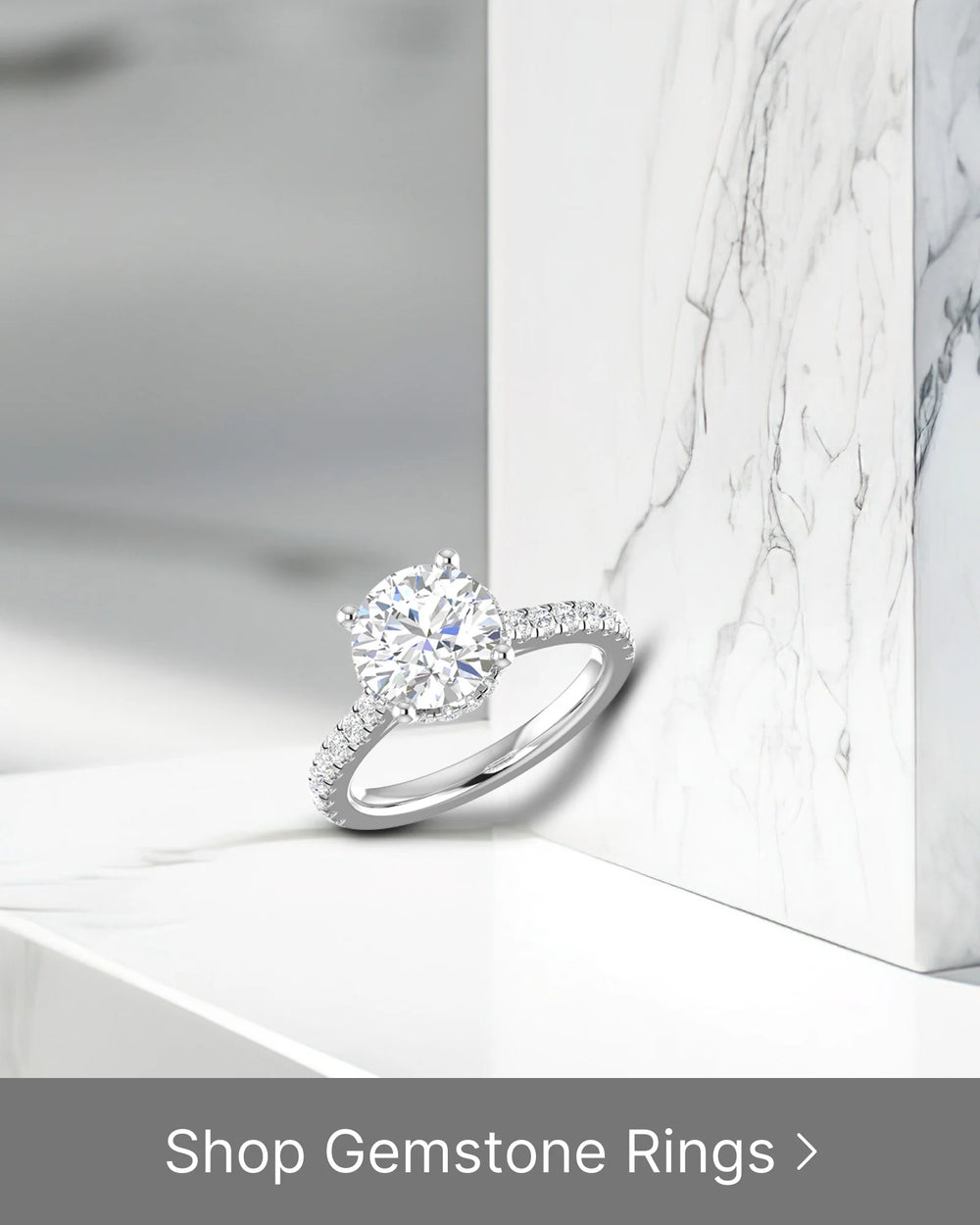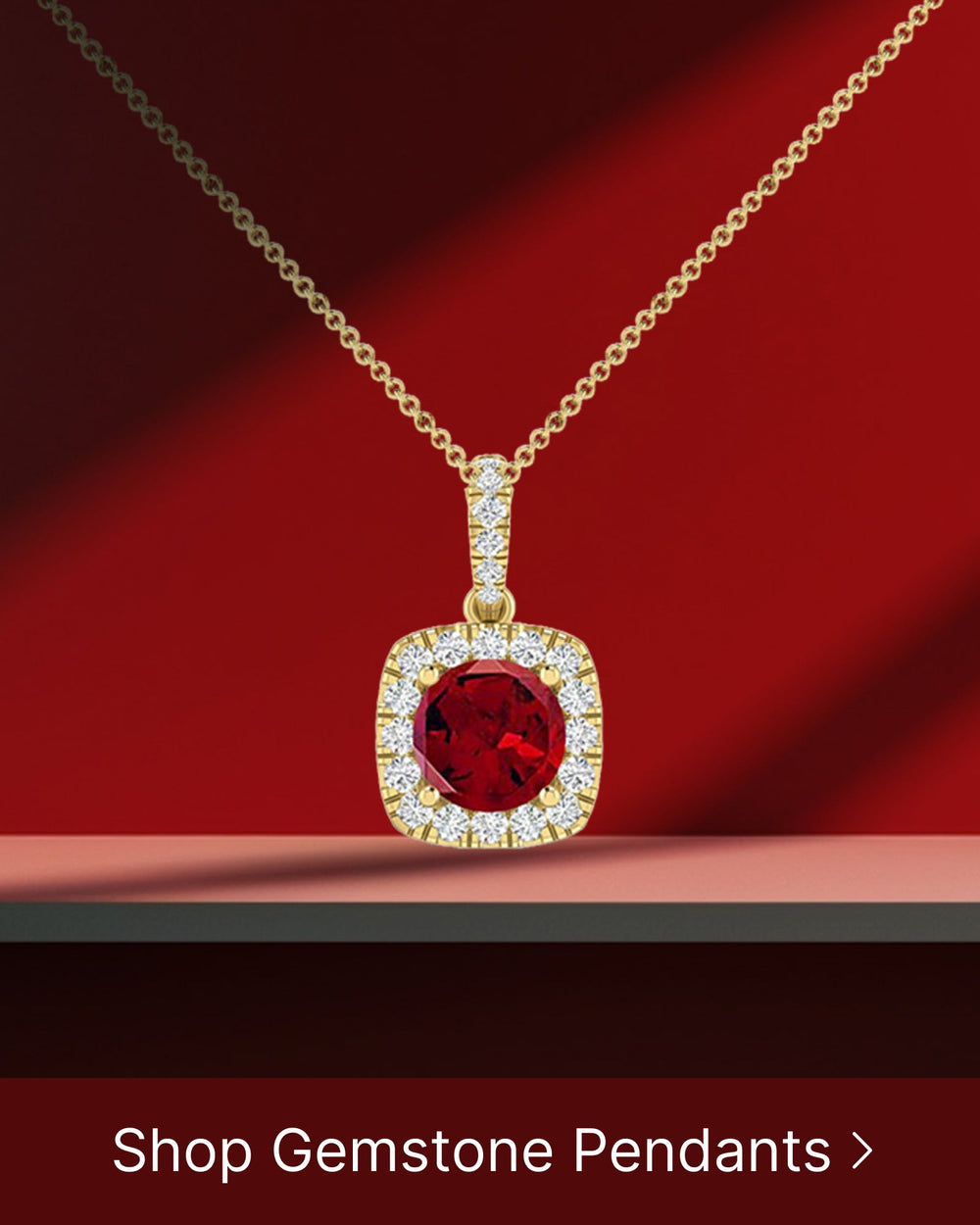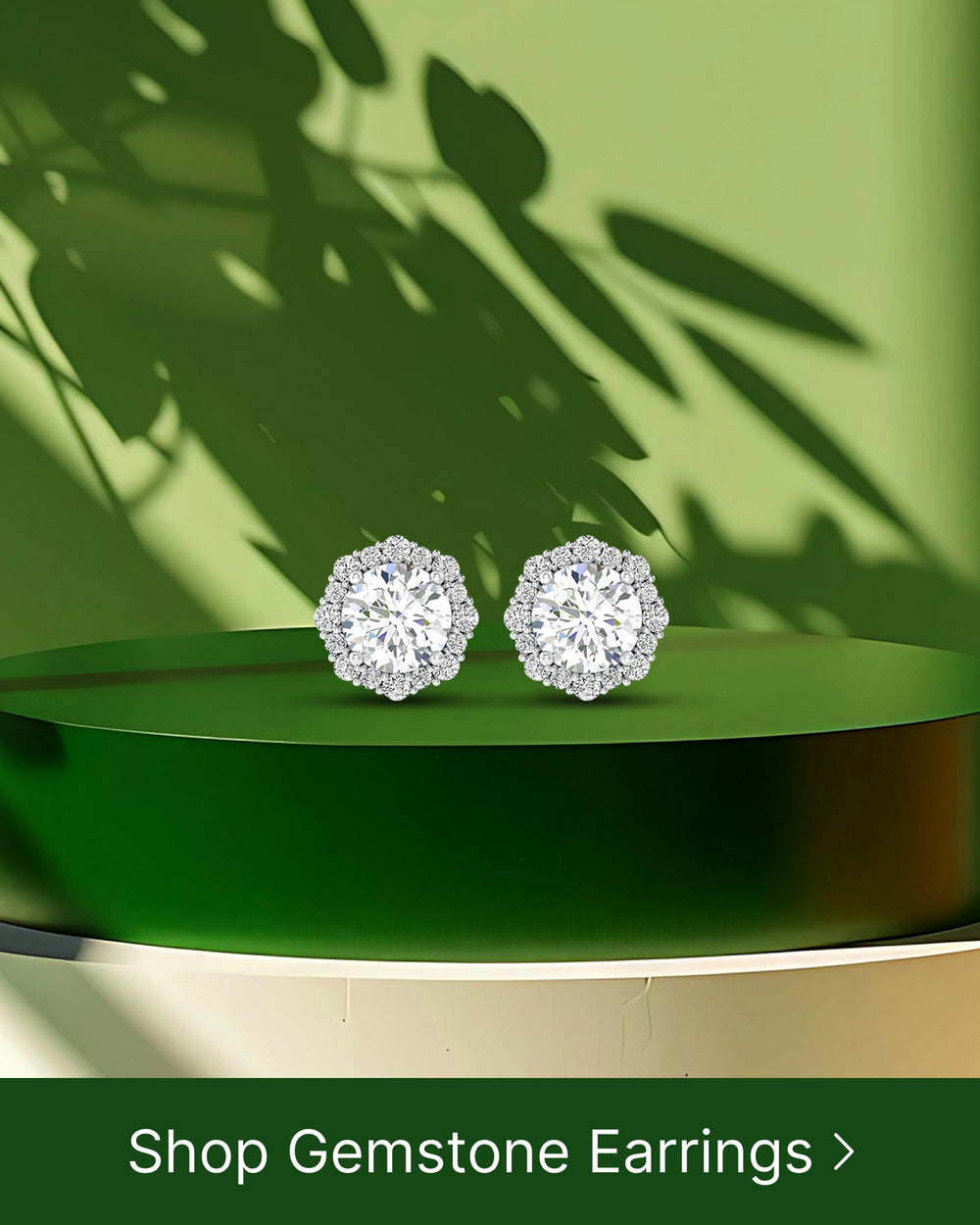If you have sensitive skin, wearing jewelry can often be a challenge. The itching, redness, and irritation that can occur are not only uncomfortable but can also be a deterrent to wearing your favorite pieces. However, there is a solution - hypoallergenic jewelry. In this article, we will explore what hypoallergenic jewelry is, why it is important for sensitive skin, the common allergens to avoid, and the top hypoallergenic metals to consider. We will also provide tips on how to care for your hypoallergenic jewelry and offer guidance on shopping for these skin-friendly pieces.
Understanding Hypoallergenic Jewelry
Before we dive into the best metals for sensitive skin, let's take a moment to understand what hypoallergenic jewelry actually means. Essentially, hypoallergenic refers to materials that are less likely to cause an allergic reaction. These materials are designed to minimize the risk of irritation and can be especially beneficial for those with sensitive skin.
Hypoallergenic jewelry is a term that has gained popularity in recent years, but what does it really mean? The term "hypoallergenic" is not regulated by any governing body, which means that its definition can vary from one jewelry manufacturer to another. However, in general, hypoallergenic jewelry is made from materials that have a low potential for causing allergies.
For a piece of jewelry to be considered hypoallergenic, it should not contain common allergens such as nickel, lead, or cadmium. These metals are known to cause allergic reactions in many people and are often found in lower-quality jewelry. By eliminating these allergens, hypoallergenic jewelry aims to provide a safer option for those with sensitive skin.
Why Hypoallergenic Jewelry is Important for Sensitive Skin
For individuals with sensitive skin, hypoallergenic jewelry is essential. When you wear jewelry that irritates your skin, it can lead to discomfort and even more severe skin reactions such as dermatitis. The constant exposure to allergens can cause redness, itching, and inflammation, making it difficult to enjoy wearing jewelry.
By opting for hypoallergenic metals, you can enjoy wearing jewelry without the worry of adverse skin reactions. These metals are carefully selected to minimize the risk of irritation and provide a comfortable experience for those with sensitive skin. Additionally, hypoallergenic jewelry is often made with high-quality materials that are less likely to tarnish or cause discoloration, ensuring that your jewelry remains beautiful and safe to wear.
It's important to note that while hypoallergenic jewelry can greatly reduce the risk of allergic reactions, it may not guarantee complete immunity for everyone. Each person's skin is unique, and some individuals may still experience sensitivity to certain metals, even if they are considered hypoallergenic. It's always a good idea to test new jewelry on a small area of skin before wearing it for an extended period of time.
When shopping for hypoallergenic jewelry, look for reputable brands and manufacturers that prioritize the use of safe materials. This can help ensure that you are purchasing jewelry that is truly hypoallergenic and of high quality. Taking the time to understand the materials used in your jewelry can make a significant difference in your comfort and enjoyment when wearing it.
Common Allergens in Jewelry
Now that we understand the importance of hypoallergenic jewelry, let's explore some of the common allergens found in non-hypoallergenic pieces.
When it comes to jewelry, there are various materials used, and some of them can trigger allergic reactions in certain individuals. It's crucial to be aware of these common allergens to protect your skin and prevent any discomfort or irritation.
Nickel: A Common Culprit
One of the most common allergens in jewelry is nickel. Nickel is often used as a base metal in many inexpensive jewelry items. It's widely used because it's affordable and adds durability to the piece. However, nickel can cause contact dermatitis in individuals who are sensitive to it, resulting in redness, itching, and blistering.
It's estimated that around 10-20% of the population is allergic to nickel, making it a significant concern for many people. The allergic reaction occurs when the nickel comes into contact with the skin, triggering an immune response. This reaction can be uncomfortable and may require medical attention in severe cases.
Other Metals to Avoid
While nickel is the primary culprit, other metals such as brass, copper, and certain alloys can also cause allergic reactions in sensitive individuals. Brass, for example, is an alloy made of copper and zinc. It's commonly used in jewelry due to its attractive golden appearance. However, some people may experience allergic reactions to the copper content in brass.
Copper itself can also cause skin irritation in some individuals. It's a popular metal used in jewelry making due to its affordability and versatility. However, prolonged exposure to copper can lead to the development of a greenish discoloration on the skin, known as the "green skin effect." This reaction occurs when the copper oxidizes and reacts with the skin's natural oils and acids.
Additionally, certain alloys, which are combinations of different metals, can also trigger allergic reactions. These alloys are often used to enhance the strength and durability of jewelry. However, some individuals may be sensitive to specific metals within these alloys, leading to skin irritation and discomfort.
It's essential to be aware of the materials used in your jewelry to prevent potential skin irritation. Opting for hypoallergenic jewelry made from materials like surgical-grade stainless steel, titanium, or 18k gold can significantly reduce the risk of allergic reactions. These materials are less likely to cause irritation and are considered safe for most individuals.
Top Hypoallergenic Metals for Jewelry
Now that we know which metals to avoid, let's explore the top hypoallergenic metals for jewelry that are safe for sensitive skin.
When it comes to choosing jewelry, especially for those with sensitive skin, it is crucial to consider the metal used. Certain metals can cause allergic reactions, leading to discomfort and irritation. However, there are several hypoallergenic options available that allow individuals to wear beautiful accessories without any worries.
Gold and Its Hypoallergenic Properties
Gold is a popular choice for hypoallergenic jewelry. It is a noble metal that is less likely to cause allergic reactions. The purity of gold is measured in karats, with 24k being the purest form. However, pure gold is too soft for everyday wear, so it is often alloyed with other metals to increase its strength.
For those with sensitive skin, it is advisable to choose 14k or 18k gold, as they contain a higher percentage of gold and are less likely to contain allergenic metals. These alloys provide the desired durability while minimizing the risk of allergic reactions.
Another hypoallergenic option is white gold, which is created by mixing gold with other white metals such as palladium or silver. This mixture reduces the likelihood of allergic reactions and offers an elegant alternative to traditional yellow gold.
The Benefits of Platinum
Platinum is another excellent choice for hypoallergenic jewelry. It is a dense and durable metal that doesn't contain any allergenic components. Platinum is known for its stunning silver-white appearance, which complements various gemstones and designs.
One of the significant advantages of platinum is its resistance to tarnish and corrosion, making it an excellent long-term investment. Additionally, platinum is an excellent option for those with severe metal allergies or highly sensitive skin, as it is considered one of the purest metals used in jewelry.
Titanium: A Safe Choice
Titanium is a lightweight, durable, and hypoallergenic metal that is often used in medical implants, making it an ideal choice for those with sensitive skin. This versatile metal has gained popularity in the jewelry industry due to its unique properties.
One of the remarkable features of titanium is its biocompatibility, meaning it is less likely to cause allergic reactions. It is resistant to corrosion and can withstand daily wear and tear. Titanium jewelry is available in various finishes, including polished, brushed, or even anodized, offering a wide range of options for personal style.
Sterling Silver and Sensitive Skin
Sterling silver is a popular choice for jewelry due to its affordability and versatility. While pure silver is hypoallergenic, sterling silver contains a small percentage of other metals such as copper. However, for most individuals with sensitive skin, sterling silver is still safe to wear and causes minimal allergic reactions.
The addition of copper in sterling silver enhances its durability and gives it a beautiful luster. It is essential to note that some people may still experience mild irritation or discoloration when wearing sterling silver, especially if they have a known sensitivity to copper. However, with proper care and regular cleaning, sterling silver jewelry can be enjoyed by many without any issues.
When selecting jewelry, it is crucial to consider personal preferences, style, and skin sensitivity. By choosing hypoallergenic metals like gold, platinum, titanium, or sterling silver, individuals can adorn themselves with stunning pieces without compromising their comfort and well-being.
Caring for Hypoallergenic Jewelry
Now that you have your hypoallergenic jewelry, it's essential to know how to care for it properly. Here are some tips to ensure your jewelry retains its quality and hypoallergenic properties.
Cleaning Tips for Hypoallergenic Jewelry
To clean your hypoallergenic jewelry, use mild soap and warm water. Avoid using harsh chemicals or abrasive materials that can damage the metal. Gently scrub the jewelry with a soft cloth or toothbrush, then rinse and pat dry. Regular cleaning will help remove any dirt or oils that can accumulate on the surface.
Proper Storage to Maintain Quality
When you're not wearing your hypoallergenic jewelry, it's essential to store it properly to maintain its quality. Keep your pieces in a clean, dry place away from direct sunlight and moisture. Consider storing them in individual cloth pouches or lined jewelry boxes to prevent scratching or tangling with other pieces.
Shopping for Hypoallergenic Jewelry
When shopping for hypoallergenic jewelry, keep in mind the following tips:
Recognizing Hypoallergenic Labels
Beware of jewelry that simply claims to be hypoallergenic without any supporting information. Look for reputable jewelry brands that provide detailed information about the materials used and their hypoallergenic properties. Ensure that the jewelry is certified as hypoallergenic by an independent laboratory or organization.
Questions to Ask When Buying Hypoallergenic Jewelry
When purchasing hypoallergenic jewelry, don't hesitate to ask questions. Inquire about the metal composition, any coatings or platings used, and any additional steps taken to ensure hypoallergenic properties. Reputable jewelers should be transparent and willing to provide this information.
By following these guidelines, you can confidently wear jewelry without worrying about skin reactions. Remember, everyone's skin is different, so it's essential to pay attention to your own skin's sensitivities when choosing jewelry materials. With hypoallergenic options available, you no longer have to compromise on style or comfort when it comes to adorning yourself with beautiful jewelry.






